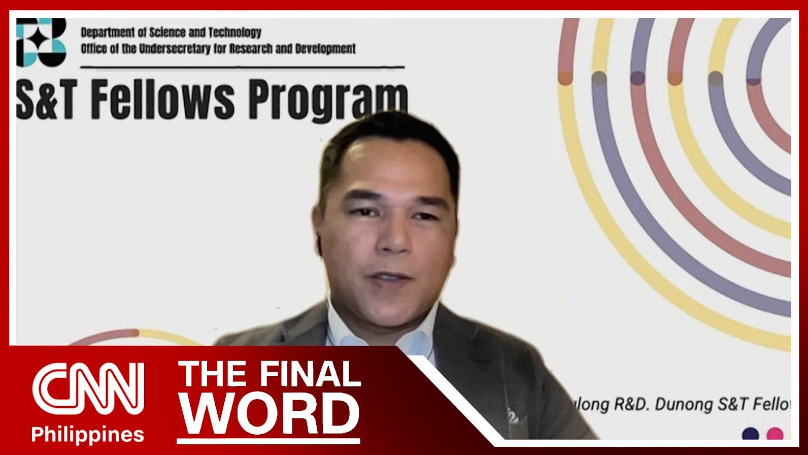Nuclear medicine for more affordable cancer detection and treatment in PH coming up, says S&T Fellow

An S&T Fellow from the Department of Science and Technology-Philippine Nuclear Research Institute (DOST-PNRI) underscored that nuclear medicine in the country has advanced in the past decades that could lead to more affordable treatment of various non-communicable diseases.
“It Nuclear Medicine has developed a lot in the past two decades which is good news. We have improved a lot on the use of nuclear medicine technology in the diagnosis and staging of cancer. Also, now, it is being used in the cases of detecting dementia,” said Dr. Thomas Neil Pascual in a broadcast interview.
Dr. Pascual, a nuclear medicine expert, is a former Balik Scientist and currently one of the S&T Fellows assigned at the DOST-PNRI. Both Balik Scientist and S&T Fellows are programs of the DOST designed to step up the research and development (R&D) capacity of the DOST RDIs and Councils to deliver innovative activities, programs, and services to Filipinos by being part of a pool of science experts.
In 2021, 189 of every 100,000 Filipinos were affected by cancer, with four Filipinos dying of cancer every hour or 96 cancer patients every day. This is according to a study by the University of the Philippines Institute of Human Genetics - National Institutes of Health.
One roadblock to fighting cancer is the high cost of diagnosis. One scan requires patients to shell out up to P100,000, a prohibitive cost that makes cancer staging and diagnostic procedures available to only those who can afford it.
Responding to this need, the DOST-PNRI prioritized its R&D on radiopharmaceuticals to find alternative ways to provide cost-efficient diagnostics and treatment for cancer and other diseases such as dementia. Radiopharmaceuticals are drugs containing radioactive isotopes which can be used as diagnostic and therapeutic agents.
Helping PNRI bring to Filipinos closer to the dream of lower diagnostics and treatment costs is the Nuclear Medicine Research and Innovation Centre (NMRIC).
According to Dr. Pascual, the Centre will be a research facility that will produce an array of tracers that can be used to help in the management of cancer.
“Right now, we have one or two radioactive tracers available but, hopefully, with this facility, we could develop more types of tracers that can be used in the management of cancer and other diseases such as dementia or even heart diseases,” said Dr. Pascual.
Once completed, the NMRIC will house a medical cyclotron and positron emission tomography–computed tomography (PET-CT) imaging center, which will make cancer detection, treatment, and management more accessible and affordable to Filipinos.
Cyclotrons produce special drugs called radiopharmaceuticals that contain radioactive atoms in safe doses. At present, there are only three operating cyclotrons in the country, and they are all located in Metro Manila. Meanwhile, PET scanners are vital in diagnosing various types of cancers.
To further advance nuclear medicine in the country, this R&D facility will also serve as a training hub for those who want to specialize in the fields of PET radiochemistry and PET radiopharmaceutical production, among others.
“So far, we have improved technology, and the DOST-PNRI thinks it can do more by doing more research. Having this type of technology available to the Filipino people improved the management of different diseases such as cancer and dementia,” said Dr. Pascual.
Dr. Pascual further said that the Centre will be open to everybody, but there will be an evaluation process to determine who is qualified or where it is appropriate to use the technology.
“But being a government facility, it has to be open to the Filipino people. We just need to know who the right people are or who would be needing the procedure,” said Dr. Pascual.
This project is under the program “Innovating Nuclear Medicine Research and Services: Development of Emerging PET Radiopharmaceuticals for Early Cancer Staging and Assessment of Biologic Functions in Cancer Cells” led by Ms. Adelina DM. Bulos, with the assistance of Dr. Pascual.
The Centre, which had its groundbreaking ceremony last year, augurs well for the less fortunate patients because early detection, treatment, and management of cancer and other diseases will now be more accessible and affordable. (30)

